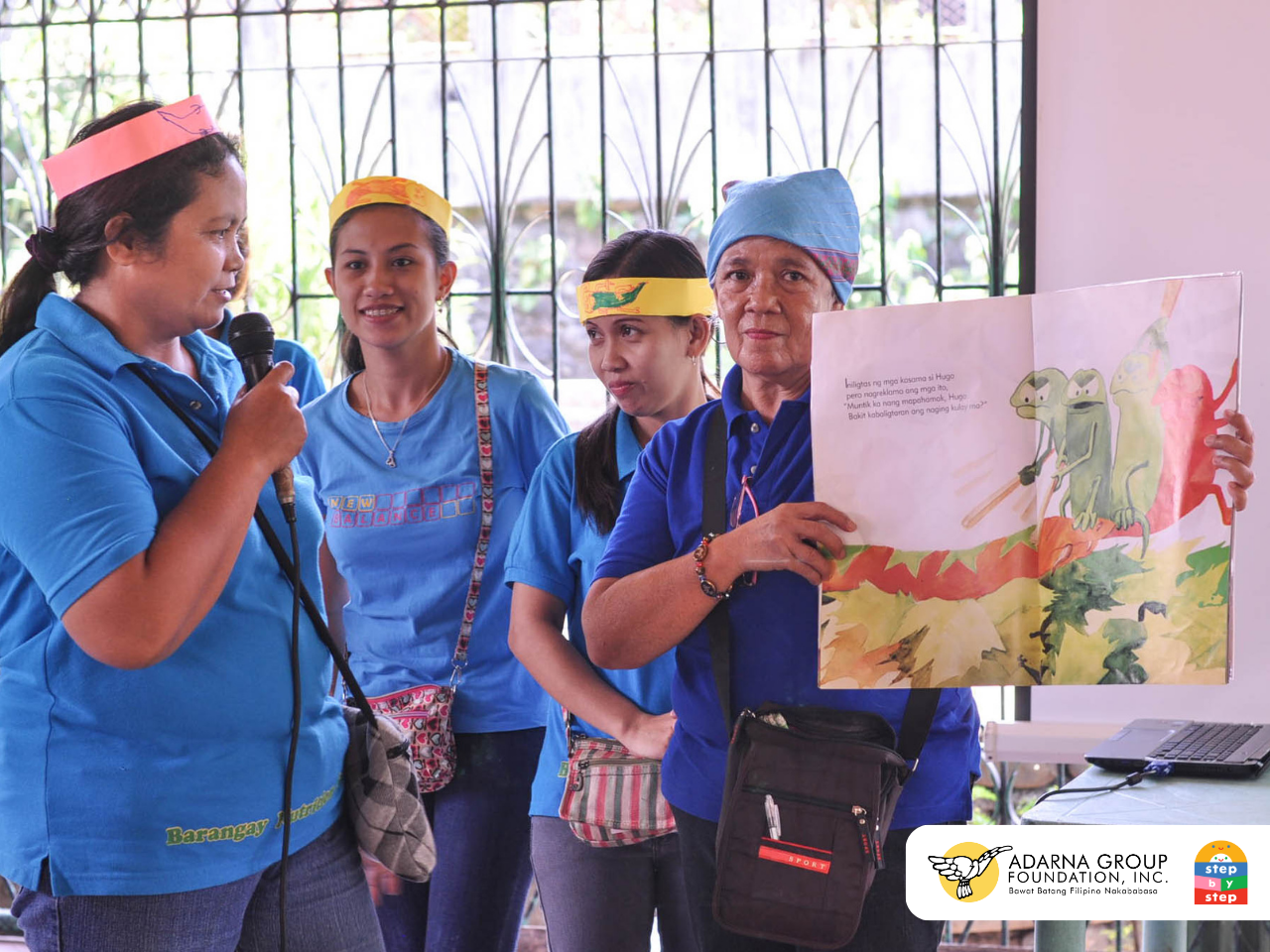Why Health Workers are Essential to Early Literacy







Health workers play a unique role in promoting early literacy in families. As experts, they have the powerful ability to shape people’s perspectives and parenting practices–making them our partners in early literacy. During the first 1,000 days of life, nurture and nutrition take center stage as major factors for a child’s survival and development. As a result, children spend much time waiting in line for check-ups at health units– presenting a precious opportunity for health workers to make every conversation count.
CONVERSATIONS ON NURTURE, PREVENTION, AND CARE
Health workers do much more in addition to curing diseases and providing relief from pain. They provide essential services to help prevent illnesses and nurture good health, too. Moreover, they impart valuable knowledge.
While many Filipinos may hesitate to see the doctor until an emergency or undermine the importance of regular check-ups, the time from pregnancy until childbirth is a vital occasion for health workers to teach expecting mothers that well-being is more than the absence of illness–a perspective every parent needs to raise children that are physically, emotionally, and mentally thriving.
This perspective is instilled by health workers to new parents in several ways, such as by emphasizing the importance of vaccinations, check-ups, adequate nutrition, and early stimulation throughout a child’s first 1,000 days. These practices are an essential part of early literacy since they greatly affect a child’s development long before they learn how to read.
Learn more about the different types of health workers and the unique role they play in a community’s health unit in “Kalusugan at Nutrisyon Namin ni Baby”, a supplementary learning material produced by the Adarna Group Foundation, Inc.
COPING WITH THE CHALLENGES
Long lines are a common occurrence in health units across the Philippines. For expecting mothers and parents with young children, this often means spending most of the day sitting beside others while waiting for their turn to consult.
Unfortunately, the scope of health workers’ responsibilities aren’t limited to caring for parents and their newborns. Health units are often short-staffed, with health workers juggling several different community health programs every month–each topic with its own expansive and ever-evolving body of knowledge.
Despite the need for continuous capacity-building to stay updated on maternal health and early child development, adding supplementary training for health workers can be difficult. For local government officials and the health workers themselves, more programs might mean additional work for an already busy health unit.
Moreover, to see lasting improvements, health workers also need the cooperation and commitment of the parents. According to Dr. Cristina '“Teng” Espino, a former Municipal Health Officer in the fourth-class municipality of Samal, Bataan, many women only visit her when they are ready to deliver their babies–admitting that they skipped the prenatal checkups. “They arrive in our clinic on the day they give birth. They literally bring only themselves. Nothing else, not even money,” Dr. Espino says. Seeing how much her patients still need to learn, Dr. Espino believes that books are the answer.
COMMUNITY LIBRARIES AND CAPACITY-BUILDING WORKSHOPS



Seeing the need to help health workers and parents work hand-in-hand, the Adarna Group Foundation, Inc. (AGFI), responded to this need by developing the first three programs under its Step by Step Approach–Unang Isang Libong Araw, Unang Aklat, and Read sa RHU.
As the first step, Unang Isang Libong Araw prepares learning partners for a child’s first 1,000 days of life. This program is based on the Kalusugan at Nutrisyon ng Magnanay Act (R.A. 11148) and includes one-of-a-kind comprehensive training videos made for health workers. Designed with the community in mind, these learning materials are suited for self-paced, offline learning and can be flexibly integrated into existing local projects, plans, and workshops. Additionally, Unang Isang Libong Araw also has three booklets made especially for parents, as featured below.
Peek into the contents of these Unang Isang Libong Araw learning materials! Each booklet features essential information on maternal health, nutrition, and child care and development. The materials distributed to communities during program implementation are also available for purchase.
While Unang Isang Libong Araw focuses on factors affecting early literacy, the second step, Unang Aklat, focuses on introducing books to children aged zero to three years old and equips learning partners with the knowledge and skills it takes to raise eager readers. Like Unang Isang Libong Araw, Unang Aklat also comes with complementary learning materials such as videos and booklets.
Lastly, the third step, Read sa RHU, trains health workers in effective storytelling so that they may read to the children visiting their health facilities and during area visits. Through Read sa RHU, learning partners receive developmentally appropriate books that are available for children to read and borrow from designated reading corners.
Curious children explore the contents of books displayed in a reading room in Samal, Bataan. The municipality of Samal is one of Adarna Group Foundation, Inc.’s partner communities for its Read sa RHU program.
For more information on how you can bring the Adarna Group Foundation, Inc.’s programs to your community, send us an email at adarnagroupfoundation@agfi.com.ph.















